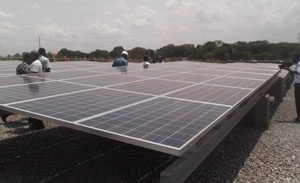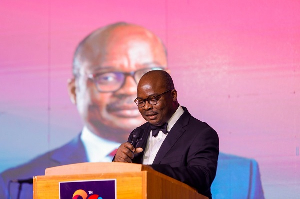The Regent University College of Science and Technology, is to lead Ghana’s crusade for the commercial production of solar energy following the discovery of silicon in the Western Region.
Silicon is the raw material for the production of solar panels, conductors, micro processors and micro controllers among other conductive electronic components. The initiative is in partnership with a Canadian University, Saint Mary’s University of Science and Mathematics, will also see the college establish the first ever 230,000 e-learning technology centre for African universities.
Renewable energy has become a global choice following the increasingly unreliable fortunes associated with hydro power generation. Ghana recently suffered power crisis for about three years raising concerns over why the country is unable to tap into the wide range of abundant renewable energy sources.
References were made to the potential of solar, wind, nuclear, carbon and coal among others but varied interpretations and considerations continue to keep the policy makers at bay. The Regent University College of Science and Technology says no obstacle is too huge to surmount.
A Canada-based Ghanaian computer science engineer and software manufacturer, Anthony Kwame Adiabah, believes there is no reason for Ghana to continue to lack energy despite abundant renewable energy sources. Mr Adiabah who was recently appointed a Lecturer at the Regent University wondered how Canada with its limited sunshine of eight months, is able to develop and depend on solar energy whereas Ghana is unable to do same. He said there have been a discovery of silicon, in the country which until recently, was being shipped away by Chinese contractors.
He maintained in spite of the different interpretation given to the cost of solar energy, the country is in the best position to explore and depend on it for a long term socio-economic gains. He said the micron rich soil discovery in the country would make commercial solar energy production less cost intensive, noting the potential is huge to the extent that the rest of the continent can feed on.
Chairman of Regent University, Professor Nicholas Nana Nsawah-Nuamah urged educational policymakers to ensure that practical base education becomes the option. On the issue of the solar energy project, he said the college is ready.
Business News of Thursday, 19 January 2017
Source: 3news.com

















